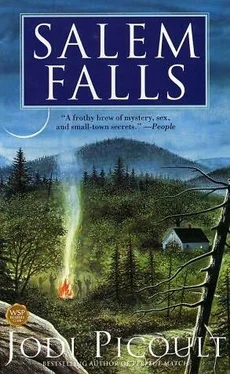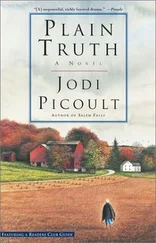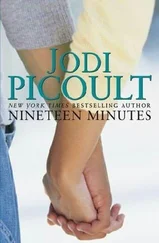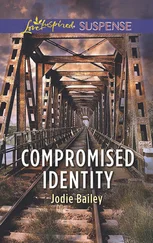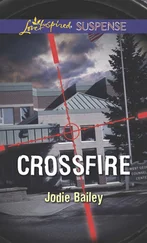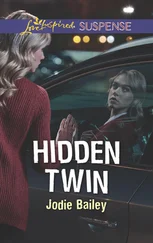“Can a forensic toxicologist tell if a drug is taken in a therapeutic dosage, or as an accidental or intentional overdose?” Jordan asked.
“Yes. We use modern analytical procedures like chromatography and spectometry to measure drugs, and then we identify the relationships between these drug levels and the clinical response to understand the pharmacological effect.” He smiled at the jury. “We also go to graduate school and learn to use words that are never less than six syllables.”
He had them laughing, which was one of the reasons that Jordan loved to use Roman as an expert. “Dr. Chu, did you analyze a sample from Gillian Duncan?”
“Yes, I did.”
“What were your results?”
“The blood sample I tested showed signs of the substance atropine.”
At the prosecutor’s table, Matt went very still. The jury leaned forward, riveted by the proof that Gillian had lied.
“Atropine?” Jordan asked. “What’s that?”
“A drug used medicinally to relax the muscles of the intestine, to increase heart rate, to reduce secretions during anesthesia, and occasionally for treatment of asthma.”
“How long does the drug take to kick in?” Jordan asked.
“It’s a very rapid onset, with peak plasma concentration within an hour, and the effects last between two and six hours.”
“For you to find atropine in a blood sample, how long ago would the person have to ingest it?”
“Within twenty-four hours of the specimen being drawn,” the toxicologist said.
“Was the level of atropine found in Ms. Duncan’s blood consistent with a normal dosage?”
“The usual therapeutic dose is zero point one to one point two milligrams. Her test showed a blood level of twenty-three nanograms per milliliter at about four hours after she drank it. With a drug half-life of three to four hours, that would correspond to a blood level of forty-six nanograms in the first hour. Working backward with the parameters of Ms. Duncan’s weight, body fat, and approximate time of ingestion, that indicates a dose of ten milligrams of atropine . . . roughly ten to one hundred times the norm.”
“What does that mean?”
“Ms. Duncan had overdosed,” Chu said.
“Would that have impaired her functioning?”
“Oh, yeah. At a dose of just two milligrams, a person would have a rapid heart rate, palpitations, dryness of the mouth, dilated pupils, blurred vision. Up the dose to five milligrams and the person would also be feeling restless, having trouble speaking and swallowing, headaches, hot skin, reduced intestinal peristalsis. If you take ten milligrams of atropine, like Ms. Duncan, you’d feel all that, plus have a rapid, weak pulse; blurred vision; flushed skin; restlessness and excitement; trouble walking and talking; hallucinations; delirium and coma.”
“Are the effects lasting?”
“Nope. It’s a short trip,” Chu said, grinning.
“But hallucinations are likely?”
“Yeah. In fact, recently in Holland four brands of Ecstasy were found to contain atropine, for that reason exactly.”
“Other people, then, have used atropine as a recreational hallucinogenic drug?”
Chu nodded. “That’s what I hear. In fact, those hallucinations are what usually tip a doctor off to the possibility of atropine poisoning . . . because atropine doesn’t show up on a routine ER tox screen, and blows your short-term memory, which makes it very difficult to get an accurate sense of if or when the drug was taken.”
“Would you know if the things you hallucinated were real memories or not?”
Cho shrugged. “You wouldn’t be able to tell. Like all hallucinogens, from LSD to peyote, it creates altered perceptions.”
“Could someone in the throes of a hallucinogenic drug imagine a physical attack?”
“Objection,” Matt called out. “This isn’t the witness’s area of expertise.”
“I’m going to allow it,” the judge said.
Chu grinned. “Think of all those guys who scratched their skin off after tripping on angel dust, convinced they had bugs crawling all over. If you’re using a psychedelic drug, what you believe to be true becomes true.”
“One final question,” Jordan said. “Is atropine derived from any particular substance?”
“It comes from the liquid extract of a plant, which has a long and varied history of being used as a poison, an anesthetic, and to induce a trancelike state. Remember that sleeping draft Juliet drinks in the Shakespeare play? Same stuff.”
“What’s the name of this plant, Dr. Chu?”
“Oh,” he said. “That would be Atropa belladonna.”
Matt called for a fifteen-minute recess and left the courtroom fuming. He stalked upstairs, to the small conference room he’d secured to sequester the victim, on the chance that he needed to recall her after the defense finished its witness list. When he burst through the door, Gillian was bent over a table, doing a crossword puzzle.
“Don’t you ever lie to me again.”
She dropped her pencil. “W-what?”
He braced an arm on either side of her puzzle. “You heard me,” Matt said angrily. “You ‘had nothing to drink that night.’”
“I don’t know what you’re talking about.”
“The atropine, Gillian. It was found in your blood.”
She looked positively stunned. “But . . . but the test at the ER-”
“Wasn’t conclusive,” Matt finished. “A more refined test was done on your blood by the defense’s toxicologist. And right now, that jury knows you lied about taking drugs-and is wondering what else you might have been lying about.”
Tears welled in her eyes. “I didn’t lie about being raped. I didn’t. It was just that everyone already thinks I’m some kind of a slut, because this happened to me. I didn’t want them thinking I was a drug addict, too. It was only that once. I swear.” Raising a ravaged face to Matt, she asked, “Is he going to get off now? Because I was so stupid?”
Matt felt the fight draining out of him, but he wasn’t going to give her false hope. “I don’t know, Gillian.”
“He won’t be acquitted.”
At the sound of a third voice, both Matt and Gillian turned. Amos Duncan stood in the doorway, stiff and uncomfortable. “Mr. Houlihan wouldn’t let that happen.” Gillian’s father walked closer, until he stood with his hand on his daughter’s shoulder. “This may be a setback, but it’s not a devastation. Isn’t that right, Mr. Houlihan?”
Matt thought of the twelve jurors and what they’d just heard. “You’re preaching to the choir,” he said, and stormed out of the room.
“Isn’t it true, Doctor, that hallucinogens produce a wide range of effects?” Matt asked.
Chu laughed. “That’s what I hear, but I may have to plead the fifth if you want me to get more specific.”
“It’s possible that one person might have a great trip on a drug and another person could . . . as you said . . . scratch his skin off?”
“Yes. It depends on dosage, potency, personality of the user, and the environment in which the drug is taken.”
“So if you take this drug, you’re not even guaranteed to have hallucinations?”
“Not necessarily.”
“Did you see Gillian Duncan in the early hours of May first?”
“No,” Chu said. “I’ve never met her.”
“Then you don’t know what her personality is like.”
“No.”
“You don’t know the environment she was in at the time.”
“No.”
“You don’t even know the potency of this particular drug, do you?”
“No.”
“Did you see her after she was brought to the ER to be examined because of a sexual assault?”
“No.”
“So you don’t know if she was having hallucinations, do you?”
Читать дальше
